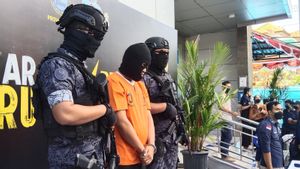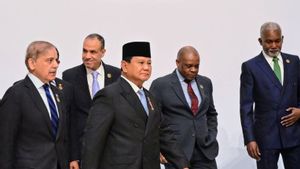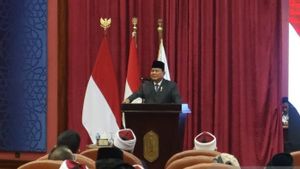JAKARTA - Head of the Monkeypox Task Force of the Indonesian Doctors Association (IDI) Hanny Nilasari revealed that people who have been exposed to monkeypox after recovering can still be re-exposed or reinfected.
This is because monkeypox is a viral infectious disease belonging to the orthopoxvirus genus, such as the variola virus that causes smallpox.
"Regarding monkeypox reinfection, it's almost the same as other viral infections. If during a viral infection, there are symptoms, and the body will form antibodies, is there a possibility (reinfection)? Yes", said Hanny in a virtual discussion, Friday, August 5.
However, the chance of reinfection with monkeypox varies from person to person. This, said Hanny, depends on the condition of each individual's immune system.
"The body has antibodies for a certain period. Unless he has an immune deficiency condition, his immune system is weak, so he can be reinfected again", said Hanny.
Hanny said monkeypox is transmitted through physical touch from the skin to the skin with sufferers. The monkeypox virus is transmitted through the blisters or red patches of an infected person.
Common symptoms of monkeypox are usually characterized by fever, severe headache, muscle aches, backache, weakness, swollen lymph nodes in the neck, armpits, or groin, and rash or skin lesions.
The mortality rate or case fatality of monkeypox sufferers is stated to be between 0 and 16 percent. Hanny revealed that there were several complications in monkeypox sufferers that worsened the symptoms and led to death.
"The most frequent complications are secondary infections, respiratory tract infections, sepsis or infections of all bodies with contaminated blood, infections in the brain, and infections in the eyes. That's what causes the case fatality rate", said Hanny.
"So it depends on the location of the complication. If it is in the brain or affects all, of the body means that sepsis has occurred. So, the mortality rate is high", he continued.
VOIR éGALEMENT:
The World Health Organization (WHO) has declared a global public health emergency regarding monkeypox. There are currently more than 18,000 cases of monkeypox globally in 78 countries, the majority in Europe.
In this case, the government through the Ministry of Health has issued a circular to be alert to monkeypox in non-endemic countries. Later, there will be a path of restrictions to carry out strict supervision from an early age.
The Indonesian Pediatrician Association (IDAI) said that children are more susceptible to being exposed to the monkeypox virus. However, that does not mean adults can avoid this disease.
Meanwhile, an epidemiologist from Australia's Griffith University, Dicky Budiman, said that Indonesia has great potential for monkeypox, especially in high-risk populations such as same-sex lovers to commercial sex workers.
"The community exists in all countries and 96 percent of monkeypox cases are from contact with this group, and in Indonesia, there is such a group", said Dicky.
The English, Chinese, Japanese, Arabic, and French versions are automatically generated by the AI. So there may still be inaccuracies in translating, please always see Indonesian as our main language. (system supported by DigitalSiber.id)

















